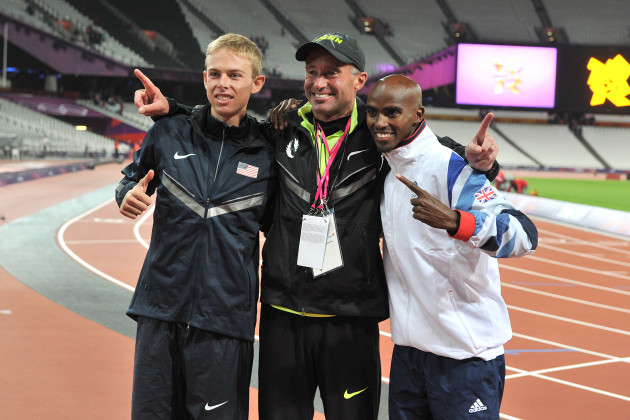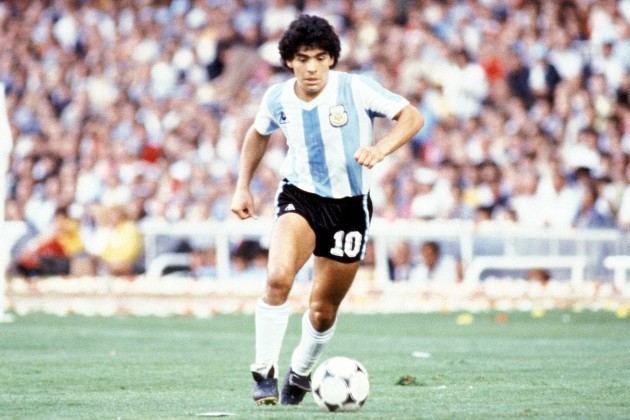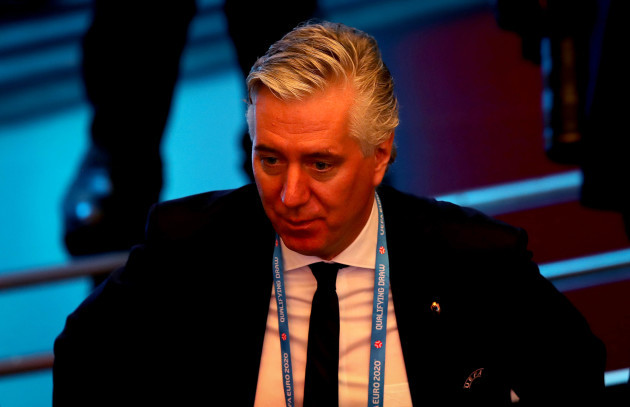1. Newly empowered, she said she found herself approaching sports with a different level of focus. She reoriented her nascent wheelchair racing career from triathlons and marathons toward sprinting. She thrived.
The pain was still there, deepening. But she also imagined herself using it as fuel for competition. Her days were no longer consumed with dark thoughts of how her life would end. Mentally, she felt free.
“Because of those papers,” she said, “I started to live again.”
Belgian Paralympic Marieke Vervoort made international headlines when her decision to apply for euthanasia papers became public. Andrew Keh spent over three years charting her remarkable journey for the New York Times.
2. Luis Suarez is staring into space. To describe it as a thousand-yard stare would be to undersell it by an order of magnitude. Such is the sunkenness of his eyes, the emptiness of his glare, the blankness of his features, it wouldn’t be a surprise if he could see straight into his front room in Uruguay. From his expression alone, you wouldn’t know if he were watching a nuclear mushroom cloud, Chamberlain’s declaration of war on Germany or a video on dental etiquette.
What’s just happened is that Gini Wijnaldum has headed Liverpool into a 3-0 lead on the night. Once again, this is a scenario that has been transcribed from the pages of pure fantasy. Jordi Alba doesn’t normally get tackled in his own corner, but this time he does. Ter Stegen doesn’t normally let shots squirm under his arm, but this time he does. Clement Lenglet doesn’t normally lose his man in the area, but this time he does. Gini Wijnaldum doesn’t normally score at all.
He has one Champions League goal in his entire Liverpool career. Now he has two in the space of two minutes.
Jonathan Liew, then of the Independent, writes one of the great on-the-whistle reports from Anfield on the night of Liverpool 4-0 Barcelona.
3. It is some story, though, and it certainly isn’t easy for Craig, all these years on, to explain how he could go from asking for spare pennies on a street corner, living in an area where the poverty could make you weep, to moving in with the most famous manager in football.
Though maybe it helped, going back to their first encounter outside the Seaburn, that he made sure to refer to “Mr Clough” when he inquired whether Swain was awake, too. Craig was a year out of primary school, small for his age, with buck teeth, fluffy hair and failing eyesight. Aaron had big, brown eyes and a sunrise of a smile. And if there was one thing Clough always appreciated it was good manners.
“Have you two rag-tags had any breakfast yet? And where’s your coats? You’ll catch your bloody death. What’s your mam doing sending you out like that? Now come inside. Hurry up, before I change my mind.”
Daniel Taylor writes for The Athletic (€) on the remarkable tale of two Sunderland boys who went begging for pennies and ended up living with Brian Clough.
4. For years there had been rumours. But they were just that – rumours.
In 2013 I began working on a story about doping in athletics.
Initially, we’d been focusing on historical claims of doping by famous British athletes in the 1980s. But in the course of that reporting, athletes and coaches began to share with me rumours of much more recent misconduct. They urged me to delve deeper into an ongoing problem, rather than only historical ones. They pointed to one of the most prominent figures in the history of the sport: Alberto Salazar, coach of Britain’s Mo Farah.
At that time, Farah was riding high – having just secured a historic Olympic and world ‘double-double’ in the distance track events. Salazar, his mentor, had been credited for transforming Farah from an athlete struggling to win medals on the big stage into the world’s number one – and Britain’s most successful ever track athlete.
But the rumours about the American, while not public, were persistent in elite circles; whispers of unorthodox methods, athletes being given unnecessary prescriptions and even the use of banned substances and methods at the prestigious Nike Oregon Project (NOP) over which Salazar presided.
Mark Daly – the BBC reporter whose Panorama programme sparked the United States Anti-Doping Agency investigations – reveals the inside story of Alberto Salazar’s downfall.
5. Not one line about her becoming world champion was written in the national press or mentioned on radio or television. “I thought I was going to get mobbed at the airport but no one was there. I got Boxing News that next Friday. I was all excited but there was nothing. My manager shrugged. ‘They don’t do women’s boxing.’ He was as bad as them.”
Donald McRae speaks to trailblazing boxer Jane Couch in The Guardian.
6. Carl wouldn’t have been long diagnosing our shortcomings. You could have just seen him at the afters on Saturday night, standing outside the pub pulling the good out of a fag and shaking his smiley head. Too old. No legs. Have to find some young lads for next year. Half-joking, half-coming up with some bit of a plan do to something about it.
He’ll be gone five years next February. Imagine. A brutal thing that feels as raw to think about now as it did then. He was 36 when he took ill playing a game of five-a-side on a Thursday night and died in St Vincent’s hospital a few hours later. He was on paternity leave that week.
A week and a half before he died, Carl played for us in the inaugural media tournament, held that year in UCD. It’s the usual way of these things that they go for a year, maybe for a few and then the general level of interest ebbs away.
Getting 16 different teams into the same place on the same day is a cat-herding job, and all it ever takes is for a couple of companies to pull out one year and just like that, it runs aground. Without Carl’s name attached it’s no big stretch to imagine that it might have faded from view by now.
Yet there we all were on Saturday, in the cool and gloom of a winter’s afternoon, running around like halfwits who frankly should know better.
Malachy Clerkin of The Irish Times penned a beautiful tribute to his late colleague Carl O’Malley after last this year’s annual five-a-side football tournament in his memory.
7. Mourinho’s tactics worked, after a fashion. Madrid won the title in 2012 and a burnt-out Guardiola left Barcelona to go on sabbatical. So why haven’t Jürgen Klopp or Mauricio Pochettino been tempted to crank up the psychological pressure on Pep?
It could be a question of personality. Klopp, plainly, is no Mourinho. Last week he did a “Jürgen Klopp answers the web’s most-searched questions about him” video for Soccer AM. Asked “What is your favourite film?” his answer was immediate and decisive: “Forrest Gump! ” Somewhere out there, José felt his lip curl without knowing why.
Or it could be that they know what they have in common is more important than what divides them. In one sense Pep is Klopp’s biggest rival. But in another, he’s a kindred spirit – one of a small group of people in English football who fully understands what he’s trying to do. One day the rest of the culture might catch up with the pair of them.
Writing in the Irish Times, Ken Early explains how football has changed utterly before our eyes.
8. God had knee surgery on July 24, and He was still limping six weeks later, on September 8, when He walked out of the giant inflatable wolf’s head onto the soccer pitch at the Estadio Juan Carmelo Zerillo, in the Argentine city of La Plata. God wore a navy Le Coq Sportif hoodie with His initials (D.M.) on the chest, a white snapback cap, two glittering earrings, and track pants.
God had not shaved, though He was not exactly sporting a full beard, either—it was more of a divine scruff situation—and He looked tiny, plush, and fragile. At 58, God was technically only three years older than Brad Pitt, but he did not call to mind Brad Pitt’s older brother so much as a small gnome in Brad Pitt’s older brother’s garden.
With His billowing neck, heavy features, and dramatic mouth, God looked like a toad that was about to make a scene in a nice restaurant.
Brian Phillips of The Ringer tells the story of Diego Maradona.
9. In some ways, obviously, the need for a simple fairy story is understandable. Narrative templates are the way we make sense of the much more formless tide of experience. But Tiger Woods’s journey back from both the implosion of his personal life and from serious injury and surgery is sufficiently complicated and nuanced to defy any reading of it as the “right” one. Can’t we pick an alternative to “redemption” out of the air? Can’t we make it a revenge narrative, instead?
How about Woods’s comeback being one in the eye for all those horrendous golfing conservatives – I use the term euphemistically – who were only too pleased to write him off once his Hooters habit was discovered? As a matter of personal taste, I would have preferred it if he had been greeted off the 18th on Sunday by a couple of cocktail waitresses. But you can’t have it all.
Furthermore, I can only celebrate anything that Woods has ever done to disappoint what the Augusta National Club represents. His first Masters victory, in 1997, came just seven years after the club had admitted a black member, and may consequently be judged to have been a terrible upset for much of its old guard.
Mercy on the people of Augusta National, who felt the full force of Marina Hyde’s pen after Tiger Woods’ Masters victory.
10. The face, the charisma, the wit, the tendency to burst into song: In so many ways, Brian and Megan are alike. But they are also a study in contrasts: At 15 years old, Brian brought meth to school and has been in and out of incarceration ever since. At 15, Megan played with her first youth U.S. national team and started traveling the world. As a young inmate and gang member, Brian was inked with swastika tattoos — an allegiance to white supremacy that he now disavows; as a professional soccer player, Megan was the first prominent white athlete to kneel to protest racial inequality.
Despite their different paths, the brother and sister have stayed close through letters, phone calls and texts. “I have so much respect for her. And not just because she’s the s— at soccer. It’s her utter conviction in the things that she believes in and the stances she takes against injustices in the world,” he says.
“I was her hero, but now — there’s no question — she is mine.”
Gwendolyn Oxenham tells Megan Rapinoe’s story for ESPN.
11. In the autumn of 2012, I began working at a pricey midtown Manhattan steakhouse. At one of my first tables sat Geno Auriemma, the women’s basketball coach at the University of Connecticut. Eleven years earlier, I had embedded with him and his players for six months for a book I’d write. I’d held a notepad countless times while scribbling his quotes. Now I was doing the same while taking his order.
“I thought that was you,” said Auriemma, surprised but hardly discomfited. As a coach, he likely has more respect for steakhouse waiters than for sportswriters.
“Meat and potatoes,” Curtis had said on my first day as a restaurant server. “That’s all it is.”
Writing for Deadspin, John Walters does a fine job in articulating a universal truth: You Are Not Your Job.
12. The now infamous ‘John The Baptist’ documentary offered an insight into the high powered lifestyle of the main man.
Interspersed between highlights such as Delaney explaining how he was off to meet the Queen, and his mother detailing how a young John had selflessly donated his shoes to ‘an itinerant’, there was pertinent stuff on governance too.
“What I’ve tried to do, with the support of a small board, is try and make everything issue based and not personality based,” said Delaney, perhaps forgetting that he was featuring in a production that likened him to a Biblical prophet.
There is no suggestion, of course, that any of those idiosyncrasies prevented Delaney from being good at his job.
And there were times where observers wondered if there were actors around the king that fed the beast by trying to curry favour.
A Clones Town representative explained on Liveline that the club’s committee went to the man himself with the news that they would be calling their new facility John Delaney Park. He didn’t say no to the tribute.
Daniel McDonnell of the Irish Independent looks back at the career of John Delaney beneath the headline, ‘How the cult of John Delaney somehow became a thing.’
13. Something crazy is almost always happening at Mike Tyson’s office. You never know who will come around the corner, through the big roll-up garage door. Sean Penn came by one day, and Roseanne, too. One day, one of the creators of He-Man came in for a general meeting. He is now a professional inventor and wanted to see if Mike Tyson and his partners needed anything invented. When the inventor asked a room full of people including Mike Tyson if they remembered He-Man, Mike Tyson said, “Yeah, love that,” and then, by way of explaining what he loved about it, added, “Skeletor.”
The company that Mike Tyson and his partners are running out of this office is called Tyson Holistic.* Ostensibly it’s a marijuana company, one of more than 10,000 new businesses launched since California voted to legalize recreational pot in 2016.
Alex Pappademas gave GQ the elevator pitch of ‘Mike Tyson is opening a weed resort’…and followed through on it in style.
14. One day, about five years ago, a tipping point came in his life. He didn’t see it coming. In his day-job as a Leinster Council coach he was heading to a school in Curracloe when he blacked out behind the wheel. “The car went through a gate, across a field and ended up on top of a ditch. I only had a few cuts but I knew something wasn’t right here.
“They said I was burnt out. They called it depression, anxiety. Every ailment has to be labelled now. That’s what they called it. It’s like the electrical circuit in a house — the whole thing was overloaded. And bang. The trip switches went. In my mind I was throwing stuff into a pressure cooker. Because I was in such a hurry to do a, b, c, d, e, f, the whole way down to z, the things I couldn’t process straight away I threw into the pressure cooker. Next thing, the lid blew off.”
After a few months O’Connor thought he was feeling better and, gently, he tried to resume what used to be his normal life. It was too soon. Miles too soon. “I used to do little bits of coaching and I used go to matches but I wasn’t present.” He withdrew again.
“Some people recover in a very short time and more people recover over a longer period of time. It took me four years. I went everywhere. I went to doctors, I went to hypnotists. You name it, I’ve been there. I went to hospital. I was in St John of God’s in Dublin. Spent time there.
In the Sunday Times, Wexford great George O’Connor tells Denis Walsh of his nadir and recovery. (€)
15. I’ve been his big brother since 1964, but in the three decades since he returned from France, Raphael has been the life and soul of our family. The best parties were always in his house and there was just so much about him to admire: his application to work; his devotion to Deborah; his love for his kids; his care for our mother; his complete selflessness and constant good humour.
And that’s the lesson.
It’s not what you do on the bike, it’s what happens when you get off.
Writing in the Sunday Independent, Paul Kimmage remembers his late brother Raphael.




